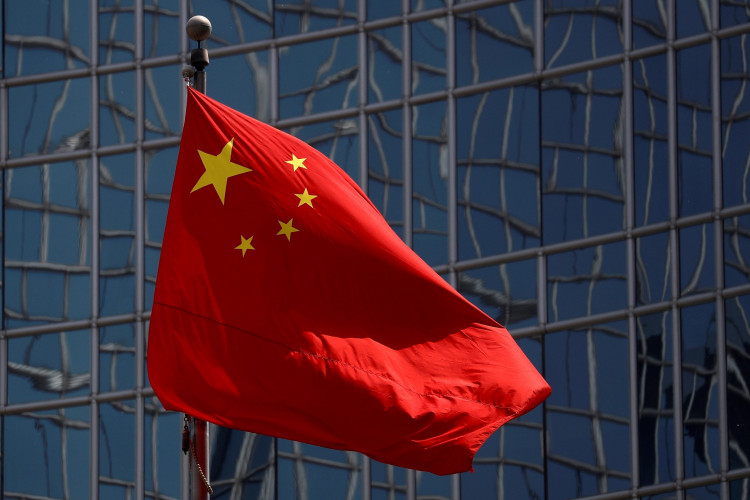China has voiced deep concerns over escalating violence in the Middle East following Iran's missile strikes on Israel earlier this week. The strikes, a direct response to the deaths of top Iranian and Hezbollah officials, have raised fears of a wider regional conflict that could drag in multiple global powers. China's response, calling for restraint and urging the international community to play a constructive role, reflects its growing influence in the region's geopolitical landscape.
On Monday, Iran launched nearly 200 ballistic missiles at Israel, reportedly in retaliation for Israeli airstrikes in Beirut that killed key figures, including Hezbollah chief Hassan Nasrallah and Brigadier General Abbas Nilforoushan of Iran's Revolutionary Guard. The missile barrage marked Iran's second major assault on Israel this year, and while Israel's defense systems intercepted many of the missiles, the attack has significantly heightened tensions across the Middle East.
Israeli Prime Minister Benjamin Netanyahu condemned Iran's actions, stating that Tehran had "made a big mistake" and promised retribution. In a stern warning, Netanyahu vowed that Iran would "pay" for its aggressive actions against Israel. However, further retaliation by Israel risks drawing the broader region into a full-scale conflict.
China's Foreign Ministry expressed alarm over the rapidly deteriorating situation. "China is deeply concerned about the turbulent situation in the Middle East and opposes violations of Lebanon's sovereignty, security, and territorial integrity," the Ministry said in a statement. Without naming Iran directly, China criticized the expansion of hostilities, adding that the current round of violence is primarily driven by the ongoing conflict in Gaza.
Beijing's position reflects its broader efforts to distance itself from the United States' military interventions while positioning itself as a diplomatic powerbroker. Last year, China successfully brokered the resumption of diplomatic ties between Saudi Arabia and Iran, two regional rivals, which was seen as a major diplomatic win. China has also facilitated talks among Palestinian factions, including Hamas and Fatah, signaling its interest in fostering stability in the region.
Iran's Revolutionary Guards issued their own statements, claiming that 90% of the missiles launched successfully hit their targets in Israel. The missile attack has been linked to Iran's frustration over the growing U.S.-Israeli cooperation in the region, with Tehran seeing the strikes as a necessary measure to push back against perceived aggressions by the U.S. and its allies.
On the ground, the situation continues to deteriorate. Israeli forces responded with airstrikes targeting Hezbollah positions in southern Lebanon, resulting in heavy casualties. The Lebanese Health Ministry reported that 55 people were killed and 156 injured in Israeli airstrikes over a 24-hour period. Meanwhile, Hezbollah clashed with Israeli forces along the southern border, with both sides reporting fatalities. Jordan, Iraq, and Lebanon have closed their airspace, anticipating further hostilities.
Iranian officials defended their missile barrage, with Foreign Minister Abbas Araqchi posting on social media that the strikes were an act of self-defense. "Our action is concluded unless the Israeli regime decides to invite further retaliation," Araqchi warned, leaving the door open for further escalation should Israel retaliate.
The growing conflict has also sparked concerns from the United Nations. Secretary-General António Guterres condemned the broadening violence, calling for an immediate halt to the hostilities. "I condemn the broadening of the Middle East conflict, with escalation after escalation," Guterres said in a statement. "This must stop. We absolutely need a ceasefire."
China, which has long positioned itself as a stabilizing force in the region, echoed these calls for a ceasefire. "It is imperative that the international community, especially influential major countries, play a constructive role in reducing tensions and restoring stability," China's Foreign Ministry said. Chinese experts also weighed in, noting that the U.S. may struggle to maintain its balancing act in the Middle East, as its unequivocal support for Israel risks dragging it further into the conflict.
"The U.S. continues to send the wrong signals to its allies at the wrong time, which could escalate tensions further," said Sun Degang, director of the Center for Middle Eastern Studies at Fudan University. He warned that the U.S. strategy of supporting Israel while attempting to limit its involvement in a broader conflict could become increasingly untenable as tensions between Israel and Iran worsen.






